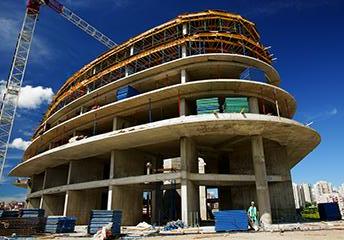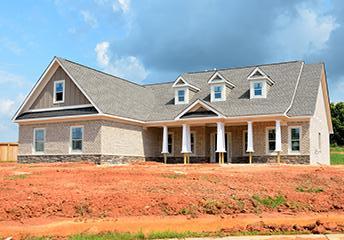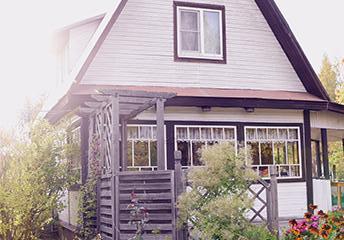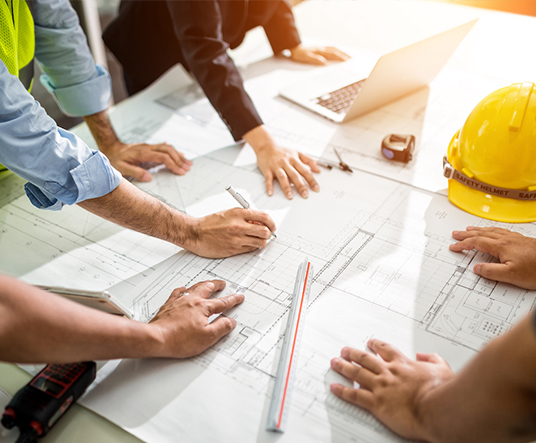RAISING THE BAR IN CONSTRUCTION SOLUTIONS
173 N. MORRISON AVE, SUITE D SAN JOSE, CA 95126
RAISING THE BAR IN CONSTRUCTION SOLUTIONS
173 N. MORRISON AVE, SUITE D SAN JOSE, CA 95126

Our commercial construction services involve the planning, design, and construction of buildings and structures for commercial use such as offices, retail stores, and industrial facilities. These services can include site preparation, foundation work, structural framing, HVAC installation, and finishing work.
Learn More
Our residential construction services refer to the design, planning, and building of homes and other residential properties. These services can include everything from laying the foundation and framing to installing electrical and plumbing systems and finishing the interior and exterior of the home.
Learn More
Accessory Dwelling Unit (ADU) services involve designing and building a secondary, self-contained housing unit on a single-family residential lot. These units can provide additional living space, rental income, or a separate living space for family members or caregivers.
Learn More
Get free estimation of your construction needs, give us a call today!
The cost of a home remodeling project can vary widely depending on the scope of the project, the materials used, and the location. Some smaller projects, such as painting or installing new fixtures, may only cost a few hundred dollars, while larger projects, such as a full kitchen or bathroom remodel, can cost tens of thousands of dollars or more.
According to HomeAdvisor, the average cost of a home remodeling project in the United States is around $50,000, with a typical range of $20,000 to $75,000. However, this can vary widely depending on the specific project, the location, and the level of customization or luxury involved.
It's important to get detailed estimates from multiple contractors before starting any major home remodeling project to get a better idea of the costs involved. It's also a good idea to budget for unexpected expenses and to build in a contingency fund to cover any unforeseen issues that may arise during the project.
Building a construction site that optimizes efficiency and supports successful project execution requires careful planning and consideration. This summary provides an overview of key factors involved in constructing a well-designed site that maximizes productivity, ensures safety, and enhances collaboration.
1. Site Selection and Preparation: Choosing the right location is crucial. Factors such as proximity to transportation routes, availability of utilities, and adherence to zoning regulations must be considered. Once the site is selected, land clearing, leveling, and soil stabilization are essential preparatory steps.
2. Designing Functional Layouts: Creating a well-organized layout is essential for efficient workflow. Collaborating with architects, engineers, and construction managers helps optimize the arrangement of buildings, equipment storage, access roads, and designated work areas to facilitate smooth operations.
3. Infrastructure Development: Ensuring adequate infrastructure is in place is vital. This includes establishing access points, constructing temporary offices, and providing essential utilities like water, electricity, and telecommunications. Safety measures, such as fire prevention systems and emergency exits, should also be incorporated.
4. Material and Equipment Management: Efficient material and equipment management streamline construction processes. Establishing proper storage areas, implementing inventory tracking systems, and developing protocols for handling and transporting materials contribute to minimizing delays and maximizing productivity.
5. Implementing Safety Measures: Safety is paramount on any construction site. Implementing comprehensive safety protocols, conducting regular inspections, and providing personal protective equipment (PPE) help prevent accidents and ensure the well-being of workers. Additionally, clear signage and designated walkways promote a safer working environment.
6. Environmental Considerations: Environmental sustainability should be integrated into construction site development. Employing eco-friendly practices like recycling construction waste, utilizing energy-efficient equipment, and minimizing noise and air pollution not only reduce the project's environmental impact but also enhance its reputation.
7. Collaboration and Communication: Effective collaboration and communication are essential for project success. Establishing communication channels, utilizing digital tools for information sharing, and conducting regular meetings foster teamwork and ensure all stakeholders remain informed about project progress and changes.
8. Ongoing Site Management: Maintaining an organized and well-managed construction site throughout the project is crucial. Regular inspections, quality control measures, and prompt issue resolution help mitigate risks and keep the project on schedule and within budget.
In conclusion, building a construction site that promotes efficiency and success requires careful planning and attention to various factors. From site selection to ongoing management, incorporating functional layouts, infrastructure development, safety measures, environmental considerations, and effective collaboration are key to ensuring a smooth and productive construction process.
When you request a free remodeling estimate, you can expect to receive a comprehensive package of information tailored to your specific project. Here's what is typically included with a free remodeling estimate:
1. Initial Consultation: A professional remodeling contractor will schedule a meeting with you to discuss your remodeling goals, preferences, and budget. They will assess the current condition of your space and gather important details to understand the scope of the project.
2. Detailed Project Assessment: The remodeling contractor will conduct a thorough evaluation of the area to be remodeled. They will examine structural elements, electrical and plumbing systems, and any other relevant components. This assessment helps identify potential challenges and allows the contractor to propose effective solutions.
3. Design Recommendations: Based on your requirements and the assessment, the contractor may offer design suggestions and concepts to enhance the functionality, aesthetics, and efficiency of your space. This can include options for materials, fixtures, finishes, and layouts to help you visualize the potential outcome.
4. Cost Estimate: The remodeling estimate will provide a breakdown of the expected costs associated with your project. It includes a detailed list of materials, labor, permits, and any additional expenses necessary for the completion of the remodeling work. The estimate will also outline the payment terms and schedule.
5. Project Timeline: The remodeling estimate typically includes an estimated timeline for the project, outlining the various stages of construction and the anticipated duration for each. This gives you an understanding of the project's overall timeframe and allows you to plan accordingly.
6. Scope of Work: The estimate will clearly define the scope of work, outlining the specific tasks and services included in the remodeling project. This ensures that both you and the contractor have a shared understanding of the project's objectives and deliverables.
7. Guarantees and Warranties: Some remodeling contractors may provide guarantees or warranties for their workmanship and the materials used. These assurances offer peace of mind, assuring you that the contractor is committed to delivering a high-quality outcome.
8. Additional Services: Depending on the contractor and the nature of your project, the estimate may include information about additional services they offer, such as obtaining permits, project management, clean-up, or post-construction support.
Remember, a free remodeling estimate serves as an initial proposal, allowing you to make an informed decision about moving forward with the remodeling project. It's important to review the estimate thoroughly and discuss any questions or concerns you may have with the contractor before making a final decision.
